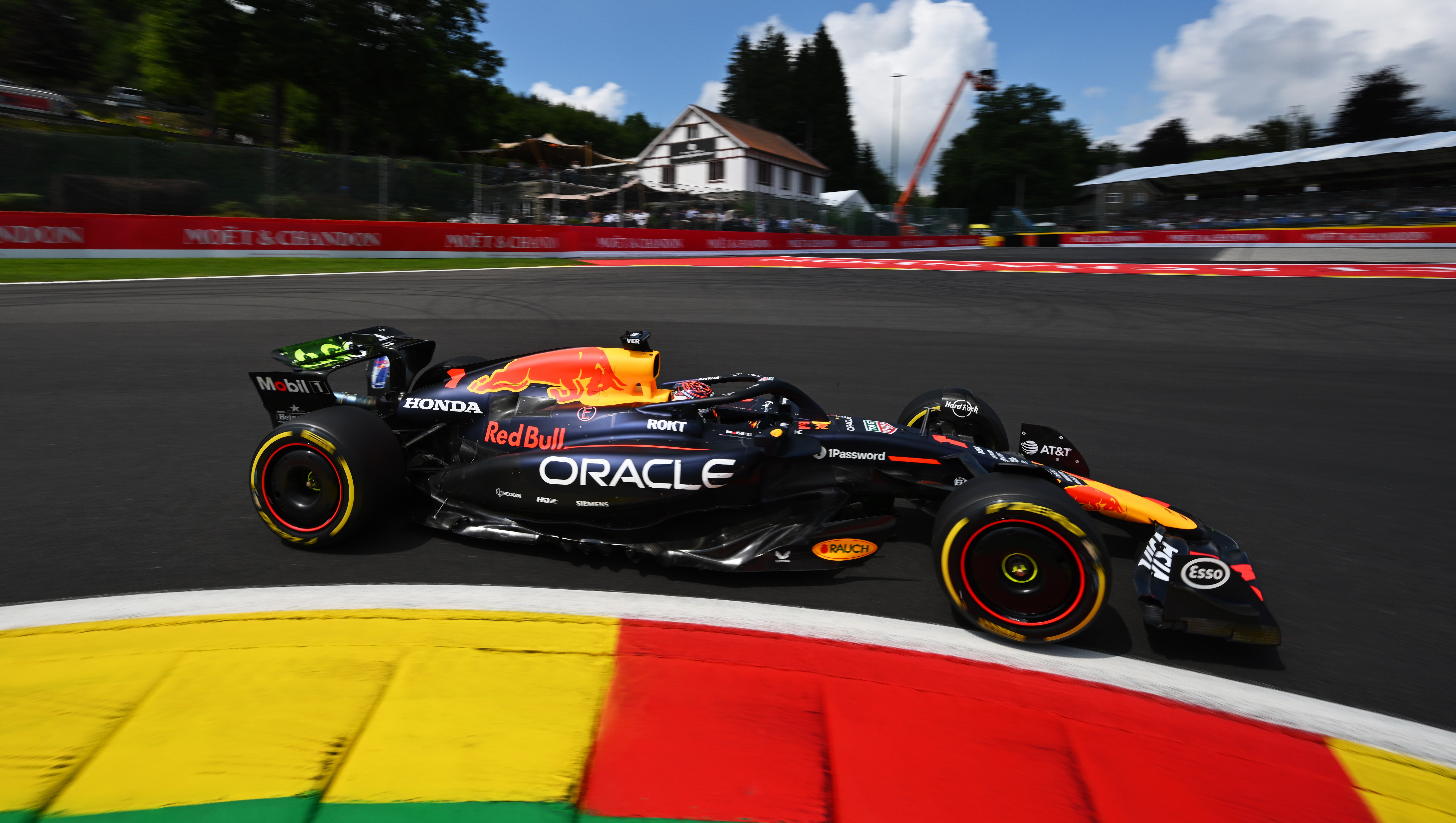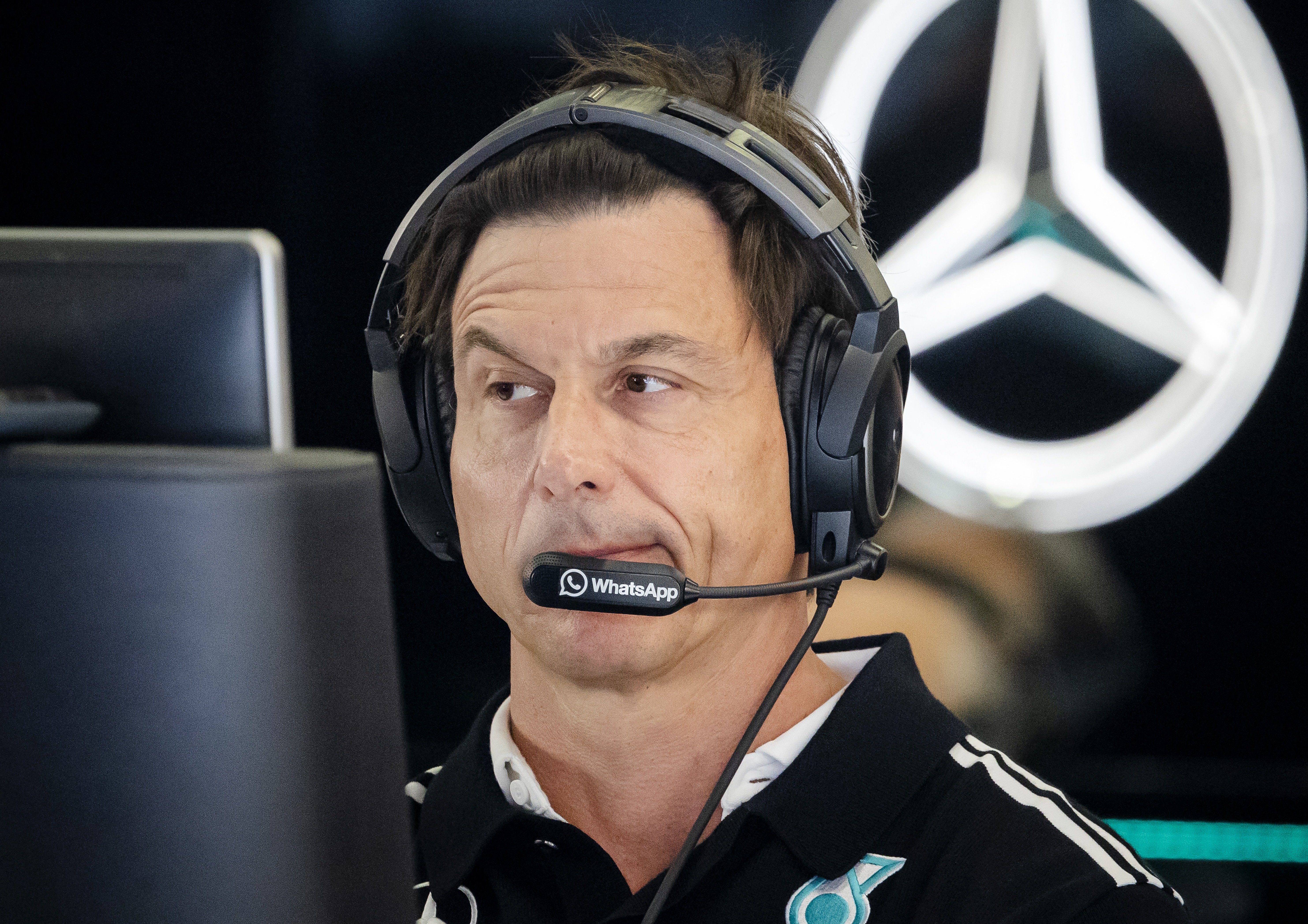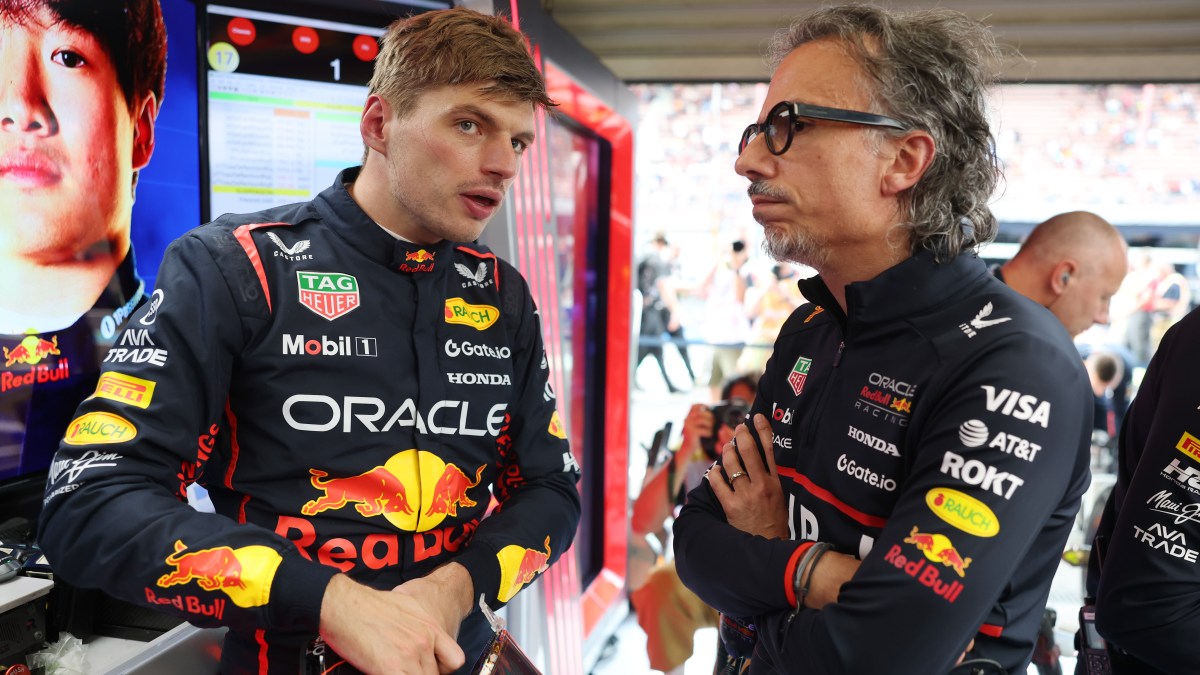One of Max Verstappen’s greatest qualities — and the four-times world champion has several — is his ability to compartmentalise. When he was asked whether people had been shaken by the departure of Christian Horner, the former Red Bull chief executive and team principal who had led the team at every one of the 405 Formula 1 races they have contested, he simply said: “No. We are racers. Of course, when someone like Christian has been a part of the team for so long, I guess initially, everyone is a bit like, ‘whoa’, but also, everyone has to look ahead.”
He considers Horner a family member, but he is able to see beyond the emotion. For Verstappen, that may be a simple equation: Horner out, Laurent Mekies in — focus on performance. For everyone else, it has been a jarring couple of weeks. The Times has spoken to members of the factory, race team, and those close to both Horner and the decision-makers that sealed his fate.

Verstappen was second-fastest on Friday in the sprint qualifying at Spa
RUDY CAREZZEVOLI/GETTY
The overwhelming point of contention is not Horner’s departure itself, but the manner of it. Given Helmut Marko, the Red Bull GmbH senior adviser, had already publicly suggested the title was beyond Verstappen, could a decision have been made for Horner to leave at the end of the season, to mutually part ways instead of the ignominy of being sacked, and appease those loyal to him?
Sources close to Horner suggest he would have been willing to do that, such was his connection to the team and the people he worked with. Instead, the decision, with the approval of the shareholders, was delivered in a London hotel room, by both Oliver Mintzlaff, the Red Bull GmbH managing director, and Marko.
It came as a shock, not only to Horner, but to those in the factory and here trackside in Spa. Some key partners, including those who spend millions a year on their association with Red Bull (and built close relationships with Horner and Olly Hughes, the chief marketing officer who was also sacked), learnt of the news through the media and are understood to be unhappy.
Nothing has operationally changed this weekend, and staff — the most senior of which were told on Tuesday, July 8, while the rest learnt of the news the following day, with the rest of the world — have not been told that anything specific will be altered.

Mekies, a respected engineer, has no desire to become a public figure like his predecessor
SHUTTERSTOCK EDITORIAL
Mekies, a highly rated engineer with a background across the paddock at the FIA, Ferrari and most recently Red Bull’s junior team, Racing Bulls, has prioritised asking staff what it is they need to perform to an even higher standard. He is also known for his excellent understanding of feedback from drivers.
“He had a special communication with drivers, which makes things very comfortable,” Carlos Sainz, who worked with Mekies at Ferrari, explained. “He’s honestly the perfect fit for that team.”
Mintzlaff, who is regarded by many as a key power player in the organisation, arrived at the circuit on Friday, but will not be conducting any interviews, nor giving a rationale for the leadership change. “The Bull doesn’t speak,” is what many are told when they join the various Red Bull sporting entities, and so has been the case here.
Headquarters may not speak, but those in the race team have, in their droves, to thank Horner for not only his service, but also his manner of leadership.
“I feel like I played football at Old Trafford under Sir Alex [Ferguson],” one said. Like Ferguson, many elements of Horner’s leadership were old school. Much of the way he led the team was the same as in his early years, when there were a couple hundred employees. Now there are about 2,000.
It is understood one of the reasons for Horner’s sacking was that Mintzlaff felt he retained too much control, particularly in commercial matters, and the two were known to have clashed over which sponsors to sign.

Wolff says Horner’s “entertainment factor” will be sorely missed
HOLLANDSE HOOGTE/SHUTTERSTOCK EDITORIAL
It was also felt that Horner’s way of working, in which he essentially approved every tiny detail, was no longer effective. Mekies will be tasked with “empowering” staff, such as the leaders working in powertrains and advanced technologies, to make their own decisions and have autonomy.
Several sources have explained that was, in fact, one of Horner’s greatest strengths. One said he was the “most empowering and supportive boss I’ve ever worked for”. The request from Marko to factory staff to “smile more”, did not, therefore, go down well. Cadillac are recruiting staff, as the 11th Formula 1 team to enter the sport next season, and Red Bull are now vulnerable to their advances.
More contradictions come in the timing of Horner’s departure. It has been argued that were he given until the end of this season, the car for next year — when significant new regulations come in — would have been set in stone.
The power unit and gearbox elements already are, but the aerodynamics can be tweaked. Horner was no expert in this area, delegating first to Adrian Newey and then to Pierre Wache, the present technical director.
That McLaren have designed a better car than Red Bull is a credit to those in the papaya garage, and the structure in which they have been allowed to work — the team principal, Andrea Stella, is believed to have been integral in this regard. Can Mekies have the same effect? Probably not, unless changes are made in the garage, too.
Wolff: I’ll miss Horner — if he rocks up at FIA I’ll be in troubleToto Wolff, the Mercedes team principal, had an unexpected answer when asked if he would miss his former rival Christian Horner. “In a way, yes, he was one of the main cast,” Wolff told Sky Sports.
“First of all, I don’t think he’s gone for ever. I think he’s going to pop up in some kind of other faction. I need to be careful. He could be rocking up in the FIA and then I’m really in the shit, you never know!
“[He was a] main protagonist, he was somebody that was controversial, that was polarising and not soft-washed, and that was good from the entertainment factor, and from that perspective he’s clearly going to be missed. His track record speaks for itself.”
Thrust into the crowd of microphones in the absence of his bosses, Verstappen, the typically straightforward Dutchman, perhaps provided the most honest assessment of what has unfolded — that it is too early to say whether all of this upheaval will actually pay off.
The most obvious and notable shift is not in the performance at all (upgrades for this weekend were planned long in advance), but the politics. Jos Verstappen can sit in the Red Bull hospitality suite without a simmering displeasure with his son’s boss. Marko can operate in his own unique way, without constantly clashing with Horner, and Mintzlaff knows that Mekies will focus on the car.
That is something every party in this debacle can agree upon: Horner made headlines. His view is that he did so for the good of the sport, having an opinion on issues (such as the 2026 regulations), which was important when representing a team the size of Red Bull.
Mintzlaff’s belief is that Horner made headlines for the wrong reasons, detracting from the race team for his own self-interest. Even in 2023, when Red Bull were incredibly dominant and winning all but one race, column inches were often dedicated to Horner’s tiffs with Toto Wolff, the Mercedes team principal, or other non-performance related topics. Mekies will not operate in that way — he is primarily an engineer and has no desire to become a huge public figure.
“Is there any way anyone can do it in the same way as Christian? No. At least certainly not me,” he said.
Mekies referenced in his press conference the need to bring back the “Red Bull culture… work hard, play hard and try to only think about racing.” That has been the motto of Racing Bulls of late, with fun liveries, team kits and social media focus — largely the ideas of Hughes.
If that is what the shareholders and Mintzlaff wish for Red Bull to return to — and it is understood they do — then Mekies will have the same difficult job as his predecessor in convincing the engineers that it justifies the extra livery weight on the car. Verstappen also prefers to focus on driving, rather than the marketing commitments made by the younger, less proven Racing Bulls drivers
So the decision-makers no longer wanted “Horner Racing”. What Red Bull Racing actually are, having never taken part in a race weekend, never developed a culture without their enigmatic leader, is anyone’s guess.
Will they return to winning ways, or will they become a mediocre race team dropping down the order without their talisman? In the words of Verstappen, “time will tell”. No one in Spa seems to know for sure, hardly a glowing endorsement of such a cataclysmic decision.
